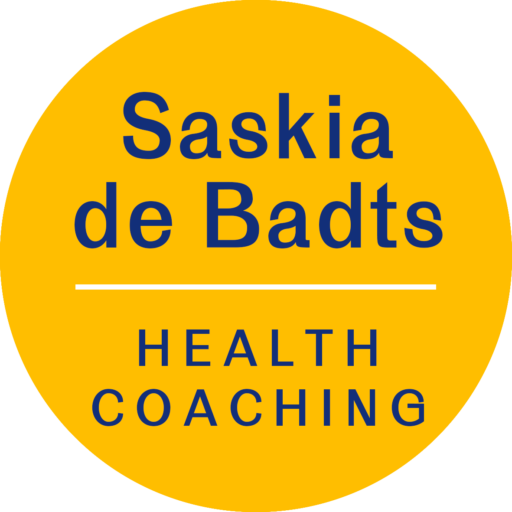LOOK AT WHAT IS GOING RIGHT, POSITIVE PSYCHOLOGY.

New straps
This week I visited the car dealer to have the tires of my car changed. Yes, that too must be done. While I waited I decided to do some work. But my plans were disrupted by the negative conversations of others in the same waiting room. For about 30 minutes I was flooded with negativity: “I'm just sitting here waiting”, “It's terrible weather”, “The service is really awful”, and so on. I almost slipped off my stool, all the energy was literally sucked out of me. Some caffeine was the only thing that gave me new energy to get some work done. Negativity really doesn't bring you anything, I noticed that very clearly here.
What is going well
It seems as if it is in the DNA of the Dutch, or perhaps people, but of the 10 times looking first at what is not good or not going well and that is such a shame. Dancers participate in this wonderfully: “My leg doesn't go high enough”, “I'm too fat”, “My grand jete doesn't look good”, “I'm so bad at…” and so on. The times I heard a dancer say “wow look how great I did that choreography can be counted on one hand, even half a hand :). In this blog I will show you what positivity can bring you. At least a lot of energy. Energy to improve your level and not, like me, to slide under the table because you are completely drained of negativity. You're just not getting anywhere with it, I'm just saying.
Positive Psychology
Now, while studying for the NBHWC exam, positive psychology comes up a lot and I love it. Positive psychology focuses on the possibilities and the achievement of personal goals. Instead of looking at what is not going well, positive psychology focuses on what you would like to achieve and which qualities you can use to achieve this. What is going well.
What does positive psychology stand for?
Positive psychology is a branch of psychology that focuses on where you would like to go, instead of on the complaints and what is going less well. Exactly what I do in my coaching. As the name suggests, positive psychology focuses on things that are going well or things that can help someone to grow. You can think of someone's positive qualities.
During my programs we always explore what these are and how you can use those qualities to achieve your goals. If you go and see what you can do, you will be amazed. Positive psychology also focuses on resilience (read one of my previous Insta blogs about this). Resilience ensures that you can recover from unexpected or negative events, or deal with setbacks. Training your resilience is therefore something that often comes back in positive psychology.
Where does positive psychology come from?
In 1999 Martin Seligman introduced the term 'positive psychology', Positive psychology developed rapidly and spread worldwide. Today, entire journals and academic courses on positive psychology have been founded, just to show how popular it is.
The influence of positive psychology is now very large, the practical applications are often used. An example of such a practical application is, for example, the use of mindfulness.
What can you do yourself?
You don't have to do a complete course right away, but you can easily add some positive psychology applications to your daily life, here are three things you can easily do yourself:
- Write in a diary:
Only write about positive experiences and events. If you're having trouble coming up with them, start by writing down three positive things a day. They can be big or small, like having fun in class, getting happy from just being in the studio, getting a compliment. This will help you become aware of the good things that are already happening in your life that you can be thankful for or that you used to take for granted.
- try mindfulness,
It's not about acting floaty or spiritual. Just give it a chance. You have nothing to lose and who knows, it might suit you. There are several (free) apps that introduce you to mindfulness in an accessible way.
Take the time to absorb the day. It can be wonderful at the end of the day, for example just before going to sleep, to consciously stop and let the day sink in. Think about what you achieved, what the positive aspects were and what you are grateful for.
- Visualize your goals.
Positive psychology focuses on making positive goals and finding ways to achieve them. What works very well here is visualizing your goals. Think of making a mood board or collage. Hang it in a place where you often walk by, so that you are always reminded of it. This way it gives you a little boost every time!
Resilience
Imagine using strengths and strategies that focus on optimism, among other things. The result? Not only will you become mentally stronger, but you will also feel an improvement in your physical health.
Whether it's overcoming challenges, building resilience, or achieving goals, the principles of positive psychology are the foundation of how I work, too. Discover how, by using positive psychology principles in my coaching, I can help you build resilience and push your limits.
You will feel more resilient mentally, but you will also notice that your physical health gets a boost. The positive connection between Positive Psychology and physical well-being has been scientifically proven.
Compliment
During my workshops we always do an exercise in which dancers have to compliment each other. That's step one and it's still going well. Step two is that the recipient has to agree with the compliment, which is already more difficult, but the result is instant happiness and that is so much better than getting stuck in the negative and sliding under a table.
Ready to experience the power of positive psychology? Contact me now and let's start building towards making your goals and dreams come true in a positive way! You will be amazed at what that brings you.
Source https://psycholoog.nl/blog/wat-is-positieve-psychologie/ Dagmar Bosma, September 28, 2022

